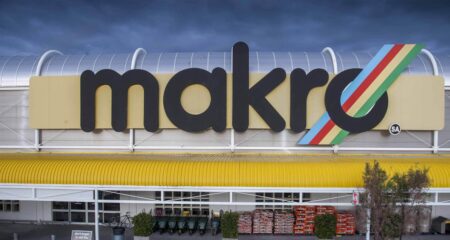 Makro announced last week that it had entered into a partnership with Sasol to build e-commerce “lockers” on the fuel retailer’s forecourts.
Makro announced last week that it had entered into a partnership with Sasol to build e-commerce “lockers” on the fuel retailer’s forecourts.
The lockers are not a new idea, having been pioneered in the US, UK and elsewhere by retailers such as Amazon and the Walmart-owned Asda, but it is the first time the concept is being introduced in South Africa. And it’s putting the spotlight on Makro’s ambitious e-commerce plans.
CEO Doug Jones tells me that the company — whose parent, Massmart, is also owned by Walmart — has leant heavily on Asda in planning to roll out the “click and collect” lockers.
The idea is that consumers shop online and then, instead of having their purchases delivered to their homes or offices, they get delivered to their nearest locker, allowing them to collect at their convenience, perhaps on their commute home from work.
The R20bn/year-revenue Makro, which launched its e-commerce platform only this year, intends installing the lockers in fuel forecourts, fast-food restaurants, office parks and even at its own stores. When an order is ready for collection from one of the lockers, a customer will receive a text message telling them as much, along with a unique code granting them access to the locker.
The company’s aggressive moves into the e-commerce space could ruffle tail feathers among the Internet pure-plays such as Takealot and Kalahari, which recently agreed to merge.
But Jones says he has an “old school” approach to e-commerce, viewing it as “just another channel” to market. Everything Makro does online will be done through the lens of the broader company strategy, he says. And it will be conservative.
“In retailing, what is important is having the right products at the right price. Fulfilling promises, customer service and an exciting mix of newness and promotion are relevant whether you’re selling online or in-store,” he says. “The thrill of ordering something from behind your desk doesn’t make up for a failure in any of those things. Equally, if you are a provider of capital, the thrill of building market share while waiting for the hockey stick to tick up will also wear off.”
One of the big challenges in building profitable e-commerce ventures in South Africa is ensuring delivery can be done without losing money. It’s one of the main reasons Takealot bought Mr D (formerly Mr Delivery) — an attempt to drive down the cost of logistics.
The proposed merger of Takealot and Kalahari is also about driving down costs. “The move was driven by the fact that, without scale, South African e-retailers simply can’t compete successfully against the local brick-and-mortar retailers and foreign companies such as Amazon and Alibaba,” the companies said in a statement at the time the deal was announced. They both admitted they were loss-making and needed the merger if they were to “survive and prosper”.

Jones is adamant that e-commerce has to be profitable for Makro. It’s one of the reasons the company recovers the cost of deliveries from consumers. He says it will cost less to deliver to lockers than to people’s homes, and those benefits will be passed on in full to consumers.
“We have a fairly simple pricing philosophy,” says Jones. “We seek fair returns for our capital providers to keep their trust in us, while running the lowest cost model possible founded on high volumes so our prices are lower than anywhere else.”
Makro intends using the new channel to broaden its product offering, though it won’t start selling goods that are not complementary. Rather, it will offer more products in specific categories — photography, for example. Products that sell well online could then be introduced in-store.
Though it will continue fulfilling online orders from its 19 brick-and-mortar stores, it’s likely that “at some point” it will have to supplement that with a distribution centre, says Jones.
But for Jones, conservatism is the watchword online. With decades of experience in South African retail, the company, now drawing on lessons from Walmart, looks set to be a formidable competitor to the pure-plays that have led the e-commerce space until now.
- Duncan McLeod is editor of TechCentral. Find him on Twitter
- This column was first published in the Sunday Times




